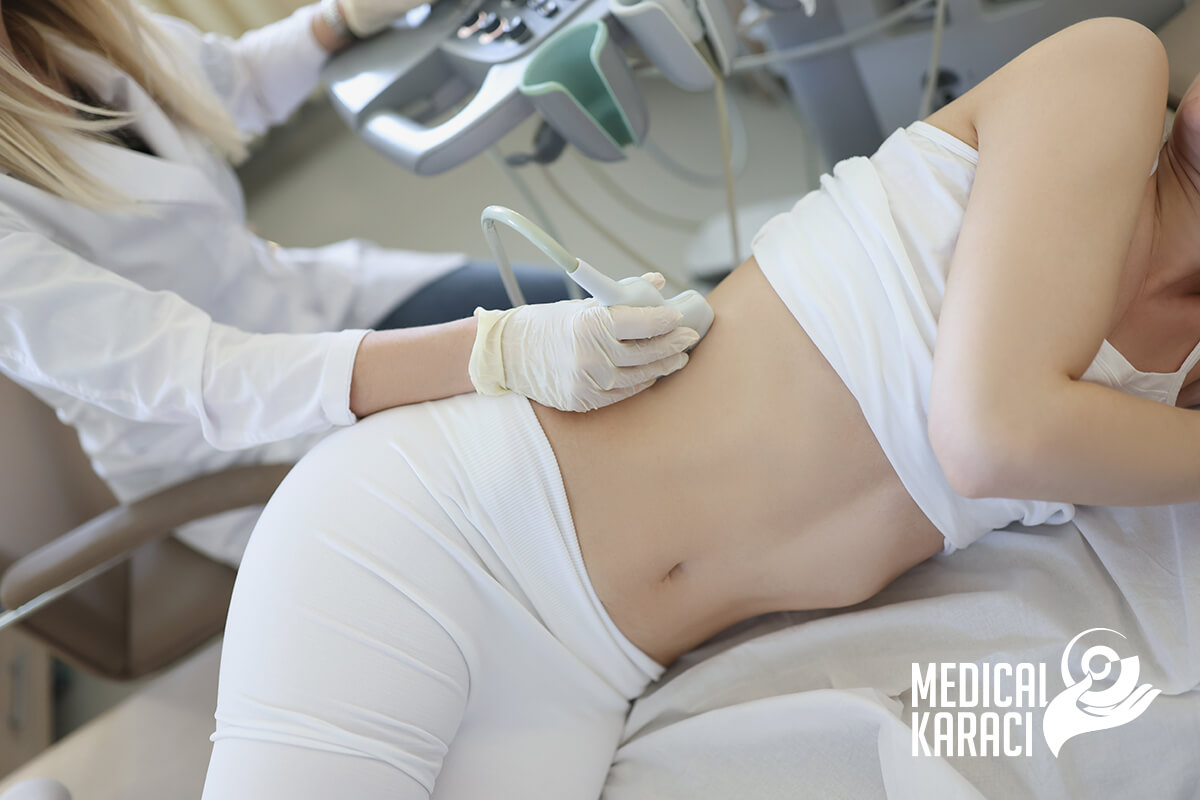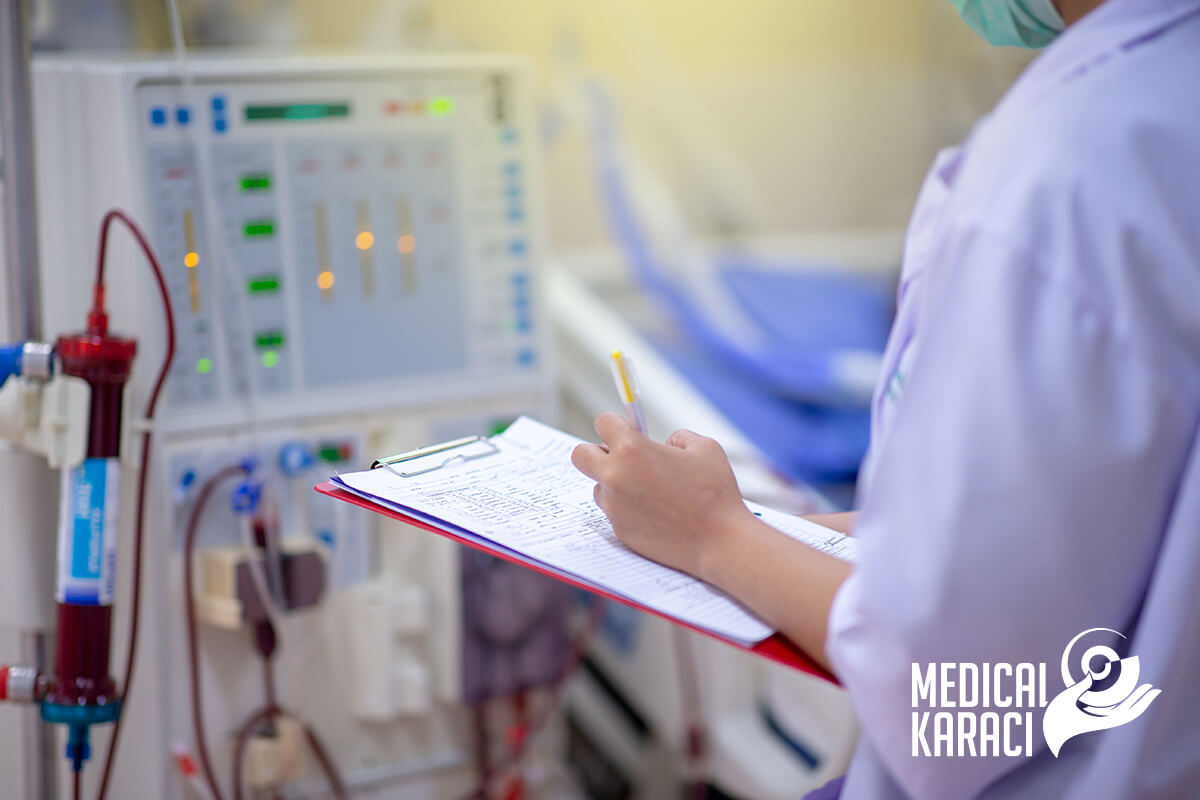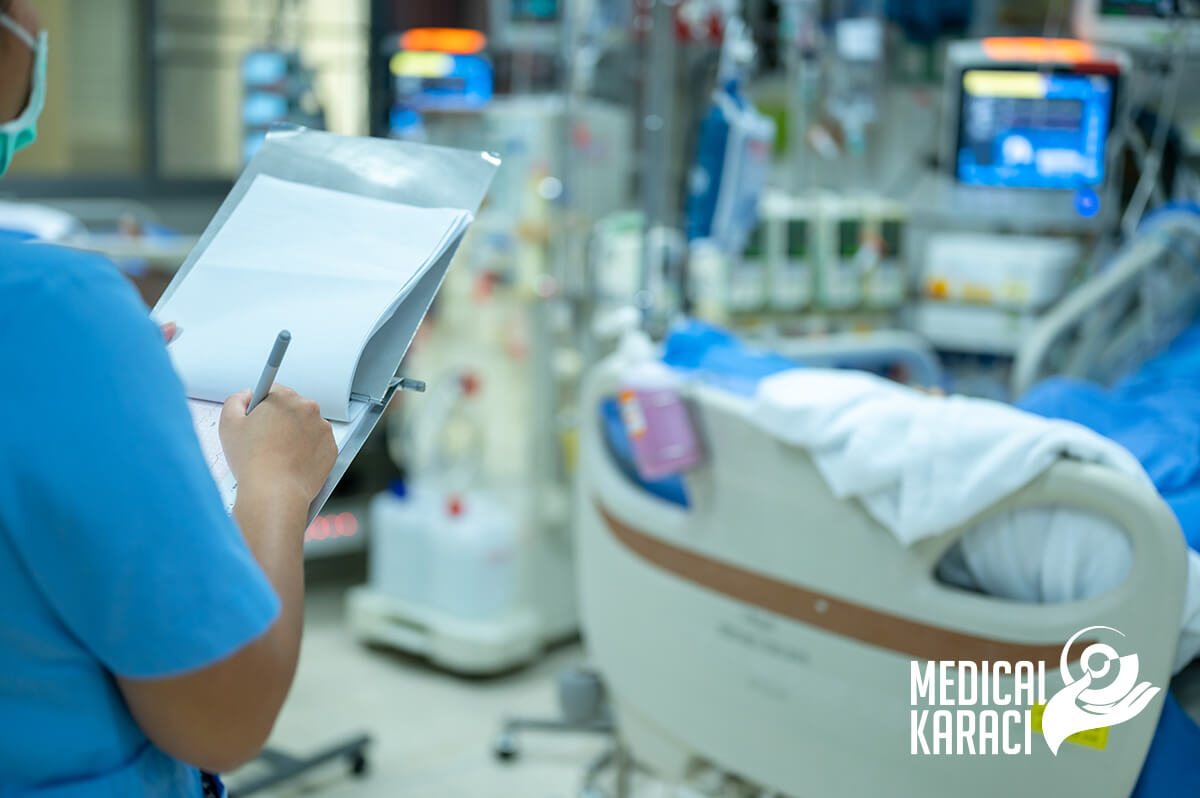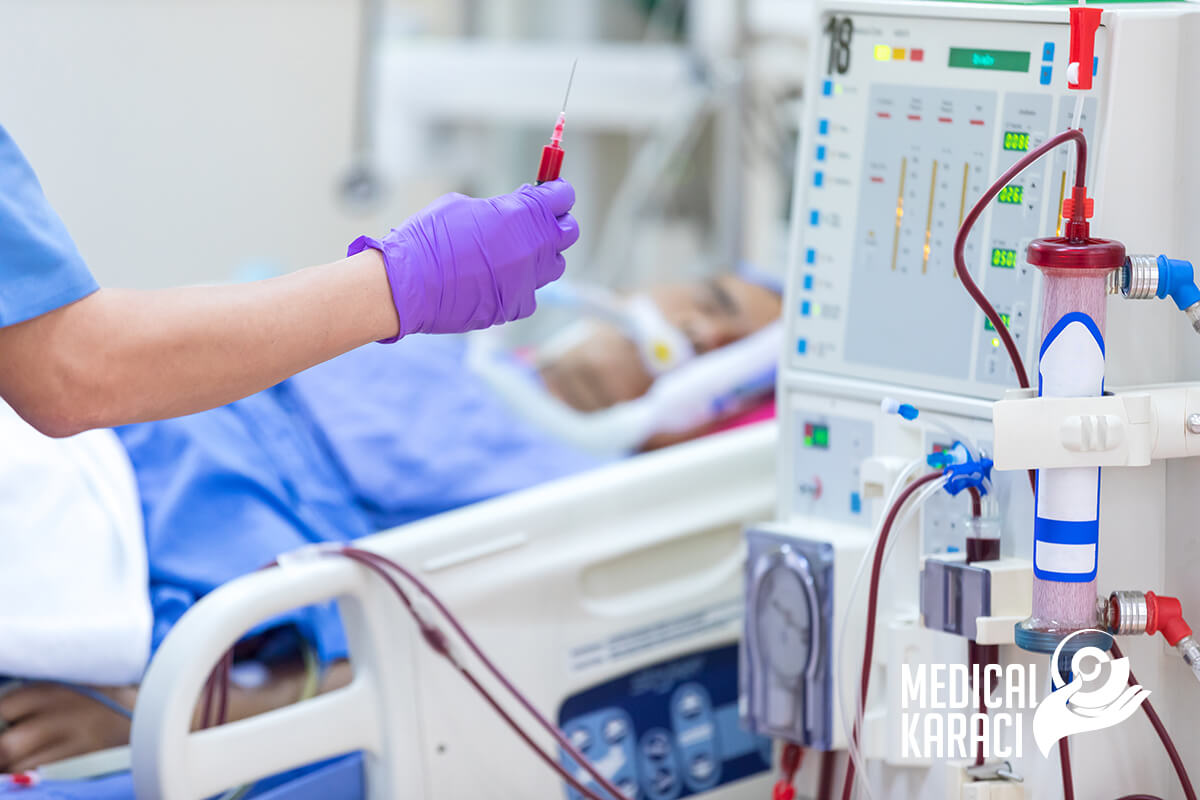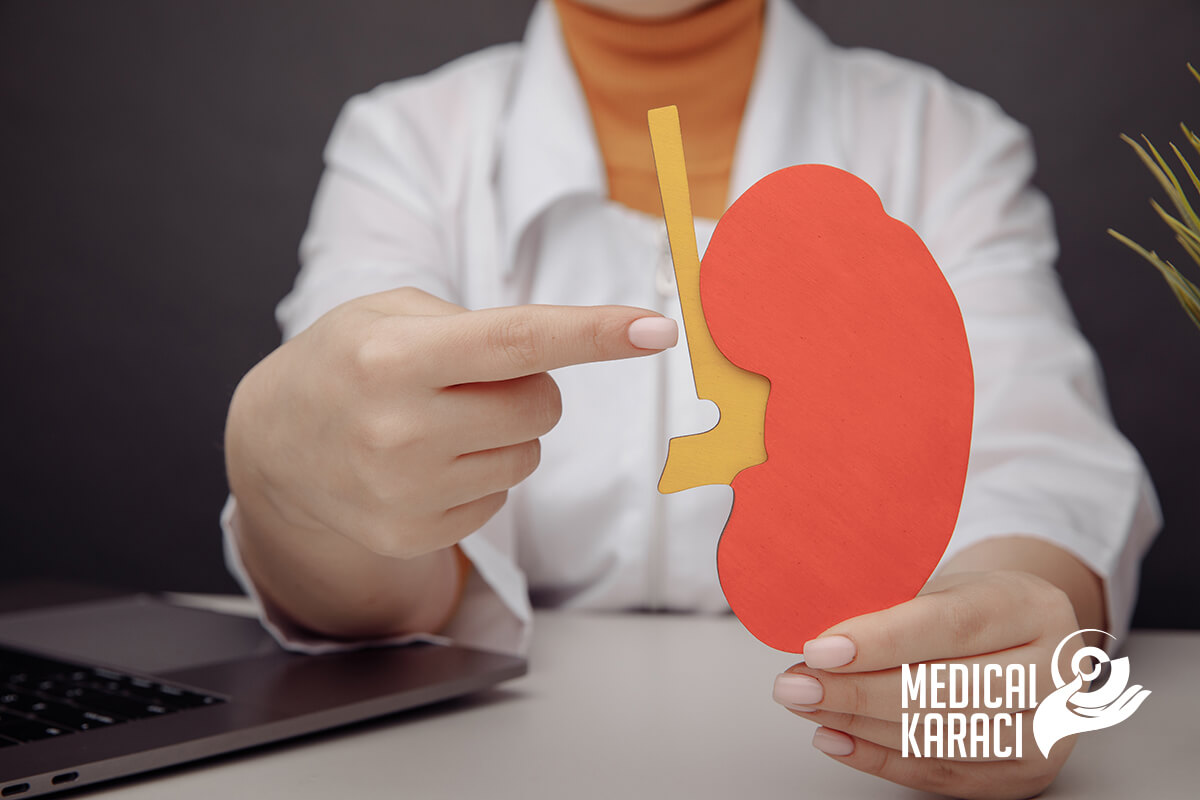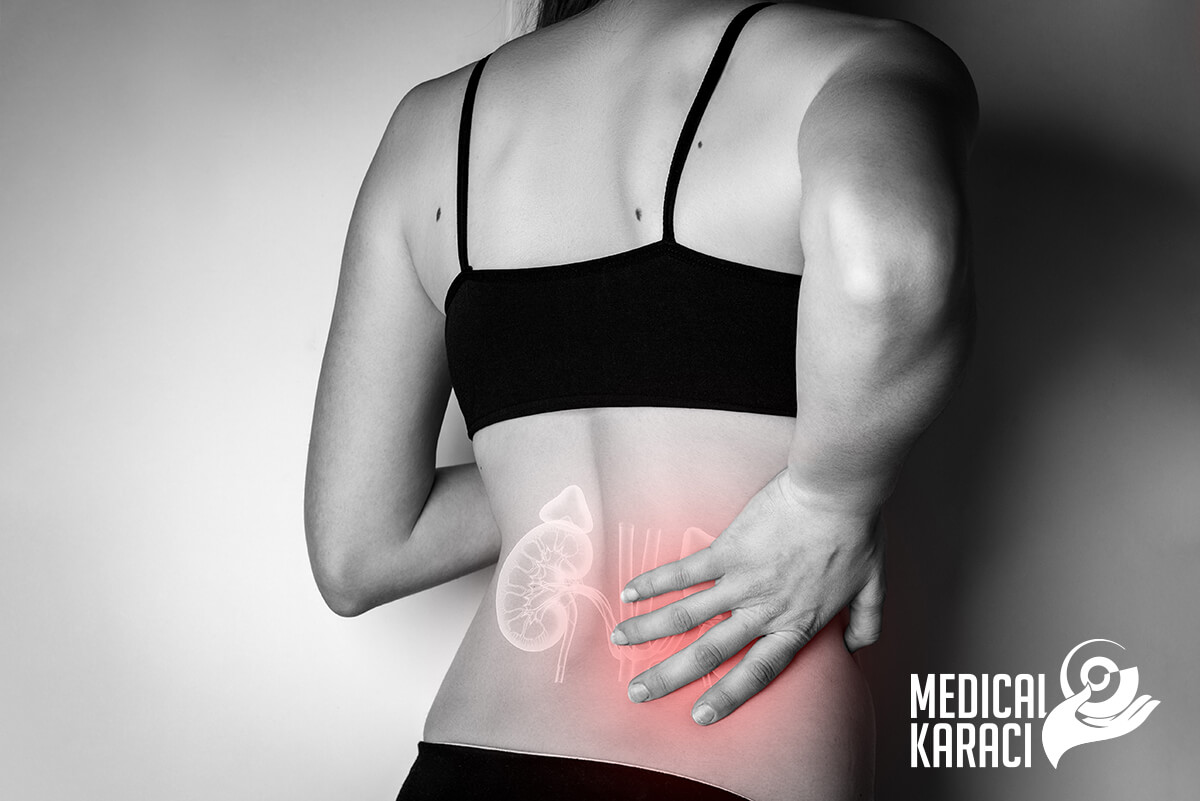The kidneys are anatomical organs in the human body that have vital importance. The main structural and functional unit of the kidney is the nephron. The total number of nephrons in the two kidneys is about 2-3 million. Three major physiological processes take place in the nephrons:
- Filtration of blood plasma into glomeruli, which cleanse it of various proteins. In the process of filtration, primary urine is formed.
- Resorption of necessary, valuable for the body, substances-water, glucose, salts and others in the tubules of the Henle's loop, in which the urine is concentrated.
- Secretion of unnecessary compounds into the ducts in order to be expelled in the urine - ammonia, urea, creatinine, etc.
When the kidneys lose their filtering ability, harmful levels of fluid and waste accumulate in the body, which can raise blood pressure and lead to kidney failure. It occurs when the kidneys have lost about 90% of their ability to function normally. Kidney failure can develop in two ways:
- "sudden" - also called acute renal failure
- "insidiously" - also called chronic renal failure. It means a permanent disorder of kidney function. Today, kidney transplantation is the only known way to treat chronic kidney failure.
Symptoms of kidney failure
Some of the most common symptoms of kidney failure are: vomiting, diarrhea, weight loss, frequent urination, blood in the urine, bone damage, heart rhythm disturbances, swelling of the feet, ankles, face and hands, muscle cramps, feeling tired and weak.
Causes of kidney failure
The most common causes of kidney failure include:
- Diabetes
- Chronic, uncontrolled hypertension
- Polycystic kidney disease
- Focal segmental glomerulonephrosis
- Infections
- Diseases of metabolism
- Autoimmune diseases such as lupus, scleroderma, dermatomyositis
Patients with chronic kidney failure must remove waste from their blood by dialysis or have a kidney transplant.
Types of dialysis:
Peritoneal dialysis
In it, special solutions are introduced into the abdominal cavity and excess fluids and toxic waste products are extracted. The solutions stay for several hours in the body and this is repeated 3-4 times a day. Cleansing with this type of dialysis lasts 24 hours, 7 days a week, just as the kidneys themselves work.
Disadvantages of peritoneal dialysis:
- risk of infection
- risk of obesity, glucose overload and impaired fat metabolism
- protein loss
- moderately limited ultrafiltration
- moderately limited weekly creatinine clearance
Hemodialysis
In it, the patient's blood is filtered and purified of waste substances, unnecessary water and salts. Through hemodialysis, arterial pressure and electrolyte balance are regulated. It is usually performed 3 times a week and each procedure lasts from 4 to 8 hours.
During haemodialysis, a number of negatives are imposed on patients such as:
- rigid diet
- water shortage
- travel ban
- isolation from social life
- detachment from work or education
- growth retardation in children
Dialysis is a life-saving procedure for patients with chronic kidney failure, but it should only be seen as a temporary solution. Dialysis only compensates for the excretory function of the kidneys, but it cannot replace the function of the hormones secreted by the kidneys that affect blood and bone metabolism. Long-term dialysis leads to complications such as renal hypertension, renal anemia, bone disease, polyneuropathy, itchy skin, pericarditis, pulmonary stasis, hepatitis, amyloidosis, and other diseases. It is for this reason that kidney transplant patients have a higher quality and length of life compared to dialysis patients. After a successful kidney transplant and postoperative follow-up, patients can continue their lives as healthy people.
When is a kidney transplant necessary?
The main method of treatment for patients with CKD (chronic kidney failure) is kidney transplantation from a donor to a recipient (recipient).
Kidney transplantation is the last stage of treatment for people whose kidney function is completely lacking. These are patients who are kept alive by dialysis. It is enough to transplant just one healthy kidney, which can completely take the role of both diseased kidneys.
Kidney donors can be:
- living persons who are relatives of the patient - brother, sister, child of the patient
- living persons who are not relatives of the patient - spouse, friends
- cadaveric donor - a person who has died recently and who does not have chronic kidney disease
Cadaver donors can be divided into two groups:
- Brain-dead donors - Brain-dead donors are those in whom the brain has been in ischemia for an extended period of time due to insufficient blood supply to the brain structures. Brain death most often results from shock conditions, which are most common in car accidents and septic conditions.
- Donors with cardiac death - In donors with cardiac death, the brain was still functioning before the decision was made that this person would be an organ donor. These are usually patients who have serious heart damage and the patient cannot recover. Therefore, if the family agrees, the patient becomes an organ donor. These organs are removed from the body, perfused with a special solution that contains high doses of anticoagulants. After the organs are "flushed", they are stored in special freezers, under special conditions, to preserve their functionality.
For kidney transplantation is necessary:
- The patient is not affected by the most common complications of long-term renal dialysis such as hypertension, anemia, development of pulmonary heart disease, etc.
- The kidney donor must be free of tuberculosis, AIDS, syphilis, hepatitis A, B, C, D, E, autoimmune diseases (collagenosis, lupus, scleroderma), sepsis, malaria, herpes, salmonellosis, trichinellosis and other diseases.
- The donor kidney must be healthy and have preserved function.
Mandatory research:
- Have a complete match between donor and recipient in terms of blood type.
| Blood group donor | Recipient blood group |
| O - universal donor | A, B, AB, O |
| A | A, AB |
| B | B, AB |
| AB | AB-universal recipient |
- Blood test - to detect infections and to check general condition
- Urine test - 24-hour urine test if the recipient is not on haemodialysis
- X-ray of the lung
- Electrocardiogram
- Breast ultrasound, mammography (for women)
- Ultrasonography of the abdomen
What is serum matching?
A serum cross-match is a blood test that the patient and donor do several times, including just before transplant surgery. To do the test, cells from the donor are mixed with serum from the patient. If the recipient's serum has antibodies against the donor's cells, the antibodies will bind to the donor's cells and be detected using a fluorescent detection method. If these antibodies are at high levels, the donor cells will be destroyed. This is called a positive cross-match and means that the transplant cannot take place. This would result in immediate rejection of the transplanted kidney.
Tests that are necessary for the donor:
- Complete blood count
- Urinalysis
- X-ray of the lung
- Electrocardiogram
- Breast ultrasound, mammography (for women)
- Ultrasonography of the abdomen
- 24-hour urine test (proteinuria, creatinine clearance)
- CT scan of kidneys (scanner)
Kidney transplant surgery
Today, living donor transplantation is becoming increasingly popular to solve the problem of kidney failure. The "gold" standard in this field is the surgical removal of the kidney by a closed method (laparoscopic method) in view of the health and comfort of the living donors after the operation. In this method, the surgical removal of the kidney is performed through small holes made in the patient's abdomen instead of making a large surgical incision. In the last 10 years, this technique has spread worldwide.
The kidney surgery by the closed method is performed through two 0.5 - 1 cm holes made in the patient's abdomen. After the operation is completed, the kidney is removed through a 6 cm incision made in the patient's groin. Compared to open surgery, patients postoperatively feel less pain, stay for a shorter period in the hospital, and adapt much more quickly to their normal life and work.
With this surgical technique, there are almost no undesirable side effects at the operated site, such as the appearance of a hernia, numbness, wound infection, and the accumulation of air in the lungs, which occur in patients after operations performed in the past using the open nephrectomy method (surgical removal of the kidney). In addition, the operation, performed using only two holes in the body and with one small incision made to remove the kidney, also produces successful results from a cosmetic point of view, compared to open surgery.
Donors start moving around and drinking water in the evening after the operation, and can eat and bathe the next morning. Patients are discharged the day after surgery.
A kidney transplant usually lasts about three to four hours. Usually, the new kidney starts functioning right away. Organs transplanted from living donors usually take 3 to 5 days to reach normal functioning, and about 7 to 15 days for cadavers. The hospital stay for the recipient usually lasts about 4 - 7 days. If complications occur, additional drugs (diuretics) are included to help the kidneys make urine.
Rejection of the transplanted kidney is possible in the first 60 hours after surgery (and sometimes months after surgery).
Rejection does not necessarily mean loss of the organ, but then additional treatment, adjustments in the type and dosage of prescribed medication may be necessary. If all this does not help, the patient returns to kidney dialysis or a new transplant is undertaken.
After a successful transplant, the new kidney filters the blood so the patient no longer needs dialysis. To prevent rejection of the donor kidney, immunosuppressants are prescribed - drugs that suppress the recipient's immune system so that it does not attack and reject the transplanted organ.
Possible problems after kidney transplantation:
- Rejection of the transplanted organ (hyper, acute or chronic)
- Infections and sepsis due to immunosuppressive drugs that are needed to reduce the risk of rejection
- Post-transplant lymphoproliferative disorders (lymphomas)
- Electrolyte imbalances, including calcium and phosphate, which can lead to bone problems
- Infections in the urinary tract, respiratory tract, viral diseases
- Adverse side effects of immunosuppressants: gastrointestinal inflammation and stomach and esophageal ulcers, hirsutism (excessive hair), hair loss, obesity, acne, type 2 diabetes, high blood pressure, hypercholesterolemia (elevation of cholesterol levels), osteoporosis, and cataracts.
The average life expectancy of a transplanted kidney is ten to fifteen years. A kidney transplant is a life-extending procedure. The average patient will live 10 to 15 years longer with a transplanted kidney than by maintenance dialysis. The increase in life expectancy is greater in younger patients. Patients who have undergone a kidney transplant generally have more energy, a less restrictive diet, and a higher quality of life than patients who are on hemodialysis.
Hospitals in this area
- Medical Park Hospitals Group
- Acıbadem Dr. Şinasi Can (Kadıköy) Hospital
- Memorial Hospitals Group
- Acıbadem Fulya Hospital
- Acıbadem Bursa Hospital
- Memorial Hospital, Ankara, Turkey
- Acıbadem Bakırköy Hospital Istanbul
- Acıbadem Taksim Hospital
- Memorial Hospital, Diyarbakir
- Memorial Hospital, Shishli, Istanbul
- Istinye University Hospital, Medical Park, Gaziosmanpasa, Istanbul
- Memorial, Antalya, Turkey
- Acıbadem Kayseri Hospital
- Acıbadem Bodrum Hospital
- Medical Park Hospital, Trabzon city
- Acıbadem Hospitals Group
- Acıbadem Kozyatağı Hospital
- Acıbadem Mehmet Ali Aydınlar Atakent University Hospital
- Liv Hospital
- Memorial Hospital, city of Dijle
- Acıbadem Hospital Adana
- VM Medical Park Hospital, Floria, Istanbul
- Acıbadem Maslak Hospital
- Acıbadem Kocaeli Hospital
- Acıbadem Ankara Hospital
- Medical Park Hospital, Ordu
- Acıbadem International Hospital
- Medical Park, Ankara city
- Memorial Medstar Hospital, Antalya
- Medical Park, Batman City
- Memorial Hospital, Hizmet, Istanbul
- Istinie University Hospital, Istanbul
- Medical Park, Gebze
- Medical Park Hospital, Bahceliyevler, Istanbul
- Memorial Medstar Hospital, Topçular, Antalya
- Medicana Hospitals
- Acıbadem Eskişehir Hospital
- Bahceliyevler Memorial, Istanbul
- Medical Park Hospital, Gaziantep city
- Medipol Mega
- Acıbadem Altunizade Hospital
- Medical Park Hospital, Bursa
- Memorial, Ataşehir, Istanbul
- VM Medical Park Hospital, Pendik, Istanbul
- Memorial Hospital, Kayseri
For more information, you can call +359895770869.

